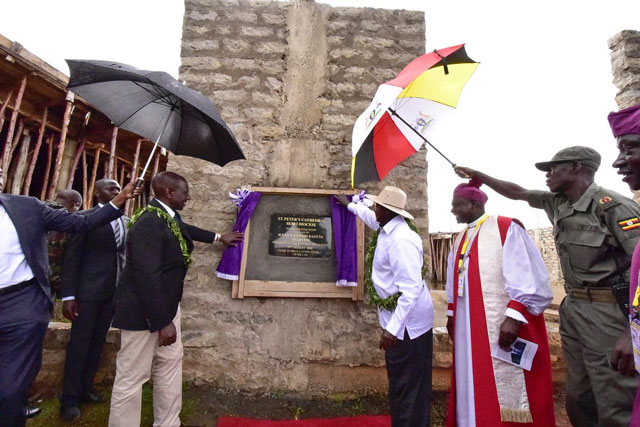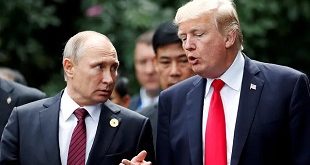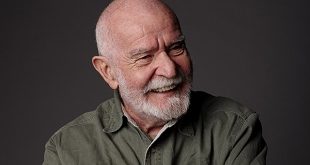
What Ugandan leader hopes to achieve by backing the Kenya 2022 frontrunner
Kampala, Uganda | IAN KATUSIIME | The Kenyan government may have blocked the deputy president William Ruto from travelling to meet Ugandan President Yoweri Museveni on Aug. 2 but insiders say that the bond between the two politicians is as firm as ever.
It was the second time the two were scheduled to meet in a month and speculation was already fever pitch on what was on the agenda. Ruto who has been sidelined from the workings of the Kenyan government by President Uhuru Kenyatta has sought the solace of his friendship with Museveni whom he regards as a mentor and elder statesman that the East African region still needs.
It is exactly a year to the 2022 presidential elections in Kenya and Ruto has eyes firmly on the race hoping to succeed his boss with whom they have had a frosty relationship for four years now.
In a radio interview after he was blocked from travelling, Ruto said that he was travelling with a Turkish investor friend, Harun Aydin, who was set to invest in maize farming in Uganda. According to Ruto, Aydin was set to invest $150m in Uganda and while on the interview, he rued the politicisation of the matter.
The Kenyan deputy president appears to have tapped into Museveni’s obsession with investors and the meeting was believed to be an extension of Ruto’s strategy and mobilisation activities with the long serving Ugandan leader.
Ruto is courting Museveni’s support for his 2022 presidential bid in Kenya and Museveni who has been in power for 35 years and took his seventh presidential oath three months ago is relishing it. A bitter fallout with President Kenyatta over power has boxed Ruto into a corner after his allies were purged from government and himself as deputy president denied access to the President.
Political commentators, partisans and government officials in Kenya have been animated since Ruto’s aborted flight to Uganda and have been debating what exactly the Kenyan deputy president wants from Uganda’s political establishment as the campaign shapes up.
Renowned Kenyan lawyer and political commentator Ahmednasir Abdullahi tweeted on Aug. 2 in agreement with blocking the flight. “…Ruto’s votes are in Kenya and he has just 11 months as DP!”
A member of the Kenyan National Assembly Junet Mohammed allied to the Jubilee party under Kenyatta addressed a press conference with other law makers castigating Ruto’s association with Museveni. “In embracing National Resistance Movement (NRM) with its authoritarian tendencies, DP Ruto reveals to all what life under him will be and worse, that in the event he captures power, he will never relinquish it.”
In his long history with Kenya where he was involved in shuttle diplomacy right from the Bush War Days (1981-1985), Museveni has always ensured he is on good terms with the country’s leaders. The country provided a safe haven as he slipped from the Luweero jungles in central Uganda to coordinate with numerous other exiles operating out of the Kenyan capital Nairobi. In years afterwards, he had cordial relations with Presidents; the long ruling Daniel Arap Moi and Mwai Kibaki who replaced him serving two terms from 2002-2013.
As Kibaki’s term came to an end, Museveni rooted for Uhuru Kenyatta who was battling an indictment from the International Criminal Court (ICC) for allegedly fomenting post-election violence in relation to the 2007 Kenyan election. Ruto equally faced charges.
Museveni did not appear to sit well with the old hand in Kenyan politics, Raila Odinga, who was also vying for the presidency.
Museveni took on an international campaign denouncing the ICC and thus ingrained himself as a patron of Kenyatta who was considered a political novice. As a result, Museveni was the guest speaker at Kenyatta’s inauguration in April 2013 where he trod a familiar line on The Hague-based court as Uhuru assumed power while facing charges.
“They are now using it [the ICC] to install leaders of their choice in Africa and eliminate the ones they do not like,” Museveni told a large crowd in Nairobi. He was speaking on behalf of African leaders who attended. Museveni further lambasted the ICC for engaging in a “legalistic process” as opposed to finding an “ideological solution” for the violence that claimed more than 1000 lives in the country.
In his speech, Museveni had calmed Kenyatta and his deputy, Ruto who were yet to be accepted by the West because of the charges. However Museveni had also sent a clear message: that he would always work to see a leader he wants take power.
Now as the clock ticks toward the end of Kenyatta’s term, Museveni finds himself in a similar situation as Kenya gears to elect a new leader. Circumstances have dramatically changed with no ICC charges in the equation leaving Museveni with different options.
Museveni prefers to have an amenable leader even though events could change once someone gets into power. But given the position Kenya occupies economically to Uganda, Museveni would rather play it safe with someone he is enjoying warm relations with.
 The Independent Uganda: You get the Truth we Pay the Price
The Independent Uganda: You get the Truth we Pay the Price




Tribalism has pervaded the social and political construct of Kenya. We see it at the advent of its independence- under KANU and KADU. We see it in 1992 when Kenya opened up for the multiparty system the violence that erupted after the elections in the Molo region of the rift valley. We see it in 2002 elections when again Arap Moi vows for Uhuru Kenyatta to be KANU’s candidate. The violence that followed the 2007 elections. The 2017 JUBILEE and NASA coalitions. And now, Gideon Moi, Musaila Mudavadi, Kaluya Musyoka, Uhuru Kenyatta and Raila Odinga- a Kalenjin, a Luhya, a Kamba, a Kikuyu and a Luo (the big five tribes) teaming up against William Ruto who is a Kalenjin himself but what differentiates him from the rest is that he’s considered the newbie on Kenya’s Political scene……in many ways than one, he’s not any different and on the whole, it be a pot claiming the kettle to more black and much of egotism at play.